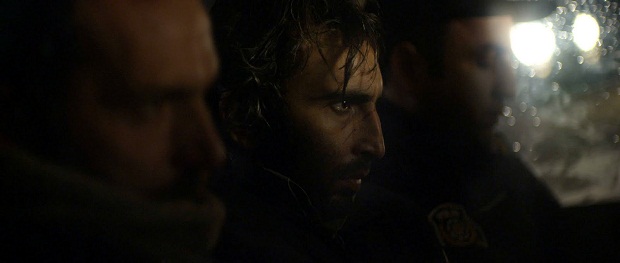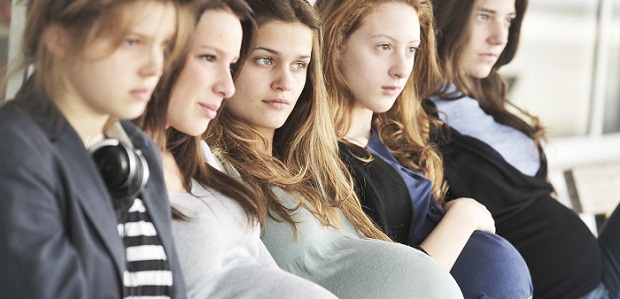The first full day of the festival proper, following last night’s opening festivities, and it’s a varied one for me.
ONCE UPON A TIME IN ANATOLIA (Nuri Bilge Ceylan)

I’m very much aware that Turkish auteur Nuri Bilge Ceylan is one of those filmmakers who, as someone who aspires to be taken seriously as a critic, I’m meant to like, and I understand what’s interesting about him, and about this film. For instance, the second shot in Once Upon a Time in Anatolia might be the best shot of a car being driven I’ve seen since the opening shot of Fargo. As Ceylan’s camera watches, three vehicles round a hill road, their headlights bright in front of the sunset, appearing almost as a line of light until they park. This observed but painterly style is typical of Ceylan, and it is incredibly arresting throughout Anatolia’s 157 minutes.
The problem, for me, comes in the fact that, for the most part, the beauty doesn’t serve very much. On the surface Anatolia is a police procedural about a group of cops, a prosecutor and a doctor taking a suspect to find a body, but that’s treated as incidental to the mundane conversations that occur during the long, frequently tedious, search. Again, I see what Ceylan is doing here; he’s exploring class relationships and the back breaking mundanity of much Police work, but frankly Zodiac also did that, and had the virtue of tying it to a riveting mystery.
The film break into a few different sections, which, for me, basically alternate between working and threatening to send me to sleep. The film sets out its stall with a first half hour following several failed attempts to find the body, and focusing on the incidental chatter at and between sites. It works well at first, with a surprisingly wry tone adopted. After that the group stops overnight at a village, and the already slow pace completely stagnates. The second half follows a similar pattern, with a well observed and funny scene of the body finally being discovered, and then the film slowing to an almost complete stop in a painfully dull last half hour.
I realise there are probably layers upon layers of metaphor and satire happening here, but to be frank, you have to grab me with your story or your characters first, and despite visual beauty and competent performances Ceylan only manages it intermittently in this hugely overlong film.
2.5 / 5
17 GIRLS (Delphine / Muriel Coulin)

Taking their inspiration from real life, writer director sisters Delphine and Muriel Coulin reset the true story of a group of Massachusetts high school girls who made a pact to get pregnant together, starting a craze at their school, in a financially deprived town in Northern France. 17 Girls is just 90 minutes long, so clearly it doesn’t have time to tell all of the girls stories, instead focusing on a small group, and on two girls in particular; Camille (Louise Grinberg) is the girl who starts both pact and craze, it’s never quite clear why, though the first impulse seems to come from a need for company (her mother works a lot, and is distant) and Clemetine (Yara Pilartz), the smallest, youngest looking and seeming of the group, whose initial efforts to find a donor fail, leading her to, in what is both the film’s funniest and its saddest scene, pay another student to do the deed.
The Coulin’s screenplay is sharp, and while not all the girls have very much dialogue they do all feel like individuals. It’s a serious film on a serious subject, but neither at script nor at visual level do the filmmakers forget that there are funny things here. Much comedy comes from the girls’ naïveté – they think that they are all going to live together in a sort of commune – but it’s the way adults receive what happens that is most amusing, especially an almost Heathers like scene of a school staff meeting to discuss the crisis. There also some very funny visuals here, notably an awkward school picture scene.
Happily the film doesn’t leave behind the serious side, which is largely reflected in the girls performances; all have conviction, and cohere as a convincing group of friends, but leads Grinberg and Pilartz do stand out from the crowd. 17 Girls doesn’t preach, doesn’t search for reasons, rather it seems to read these events as a strange and extreme expression of the stupid decisions that teenagers can make and a product of a desire to fit in, whatever that means. It may not go anywhere very unexpected, and I could perhaps have stood it being a little longer to delve a bit deeper into a few more characters, but this is well made, and never less than interesting.
3.5 / 5



